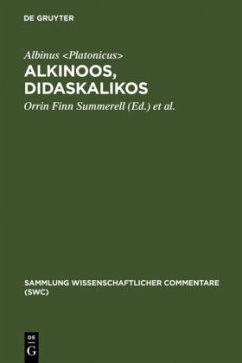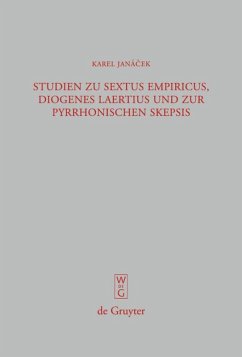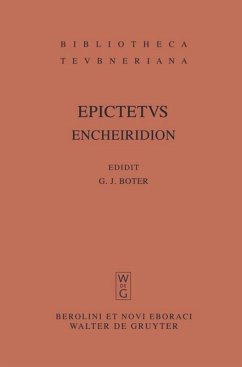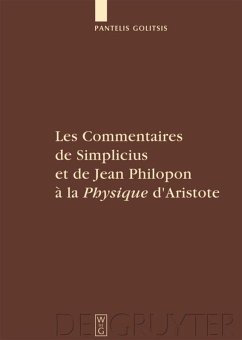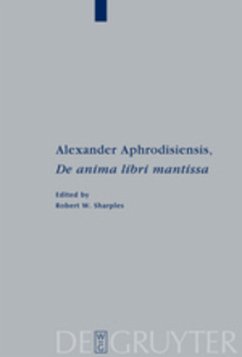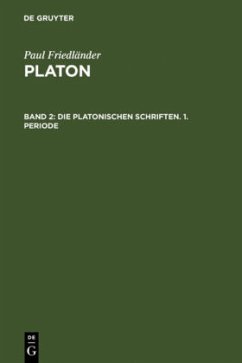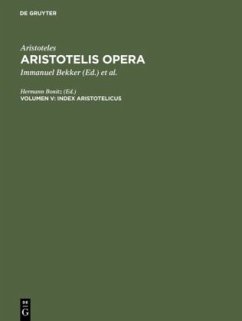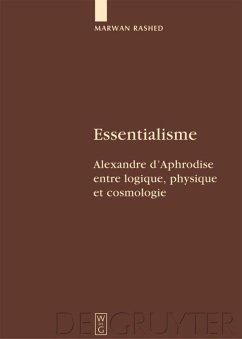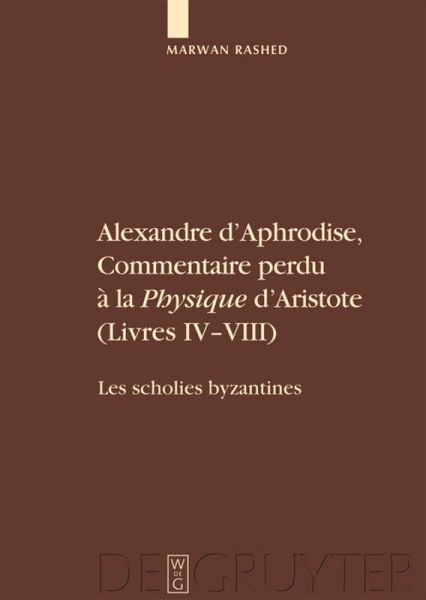
Alexandre d'Aphrodise, Commentaire perdu à la "Physique" d'Aristote (Livres IV-VIII)
Les scholies byzantines. Édition, traduction et commentaire
Herausgegeben: Rashed, Marwan
Versandkostenfrei!
Versandfertig in 6-10 Tagen
189,95 €
inkl. MwSt.

PAYBACK Punkte
0 °P sammeln!
The no longer extant commentary by Alexander of Aphrodisias (approx. 200 AD) on Aristotleâ??s Physics is one of the most important works of antiquity ?, as a source text having influenced both the Greek commentators on Aristotle and ? through the mediation of Arab scholars? Western medieval philosophy. This volume presents the first edition and study of nearly 700 recently discovered Byzantine scholia, which allow a more exact reconstruction of Alexanderâ??s teachings on physics, and at the same time contribute to a better understanding of Aristotelianism and preclassical physics.
Der heute verlorene Kommentar von Alexander aus Aphrodisias (ca. 200 n. Chr.) zur Physik des Aristoteles ist eines der wichtigsten Werke der Antike: beeinflusste er doch als Quelle sowohl die neuplatonischen Kommentatoren zu Aristoteles (vor allem Simplikios) als auch - vermittelt durch die Zitate bei Averroes - die Naturphilosophie des Mittelalters. Die von Marwan Rashed präsentierte Erstedition und Untersuchung der nahezu 700 byzantinischen Scholien, die erst jüngst in zwei Pariser Handschriften vom Anfang des 14. Jahrhunderts (Paris. Suppl. gr. 643, Paris. gr. 1859) entdeckt wurden, erlauben eine genauere Rekonstruktion der physikalischen Lehren Alexanders und tragen zugleich zum besseren Verständnis der Geschichte des Aristotelismus und der vor-klassischen Physik bei. Auch finden sich beispielsweise neue Präzisierungen seiner Lehre von Ort und Zeit ebenso wie seines Zugangs zur Bewegung des 'Ersten Bewegers'. Die byzantinischen Scholien ermöglichen zum ersten Mal, die völlige Abhängigkeit des Simplikios von seinem Vorgänger festzustellen und, noch wichtiger, die Transformationen, die er an der peripatetischen Naturphilosophie unternahm, um sie mit einem gewissen Platonismus in Einklang zu bringen.




